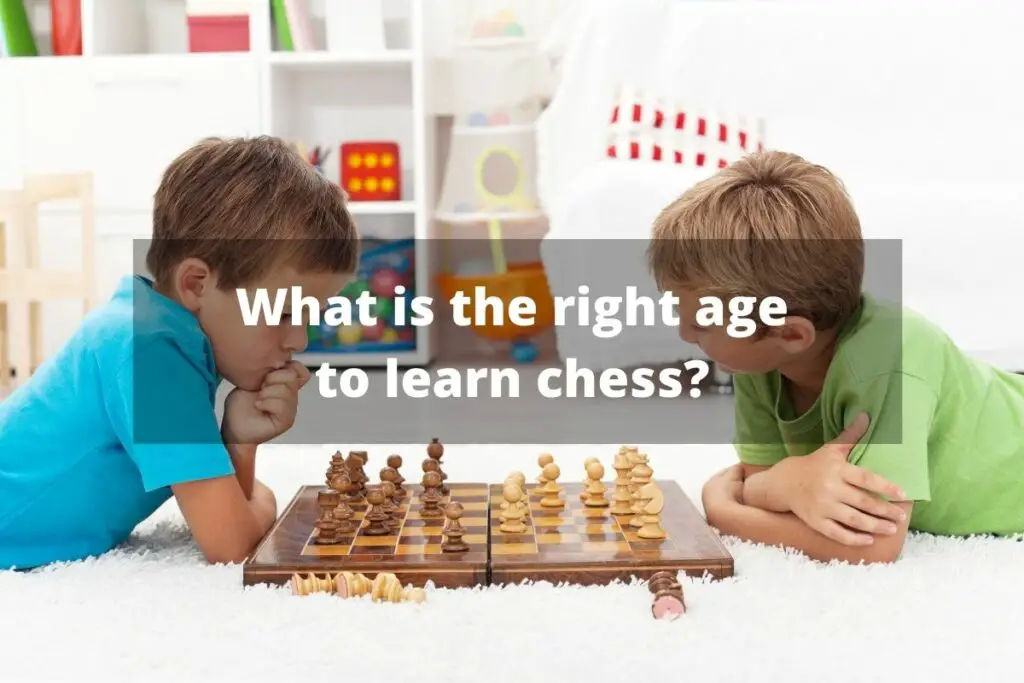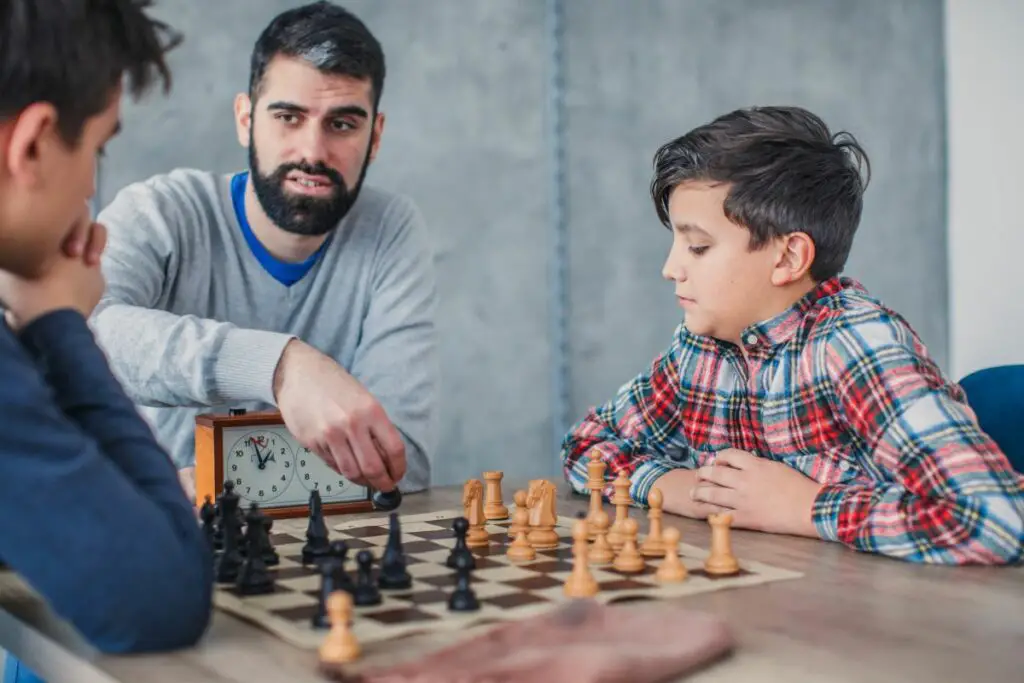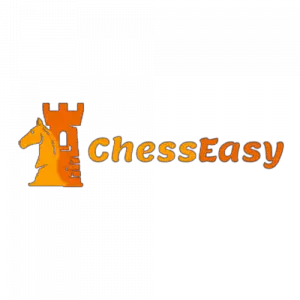As a parent, you must be wondering how to develop your child’s cognitive skills and reasoning ability. You must be thinking about how to bring overall (both mental and physical) growth in your child. Now, you may ask, what should be the right age to teach your child chess?
The right age to learn chess is 5 years. Learning chess at the age of 5 will help the kids to be smarter and more competitive. It also helps the parents and coaches to find the child’s prodigy and can help them to improve their skills.

You should encourage your child to develop an interest in the game that involves logical thinking from an early age. Introduce them to low-level games like building blocks or small puzzle games, which are suitable for their age. This will help build their confidence. Later on, you can introduce them to the game of chess so that they do not get confused at the initial stage of playing a high-level game.
In this article, you can find out the right age to teach your child the game of chess and also know the adverse effects to start the game before the recommended age. Moreover, if you want to teach your child to play chess at home then you can keep reading this article to find out how!
Does playing chess at early age harm your child?
Learning chess from the age of 5 will not harm the child. Moreover starting at this age gives positive results to the kids. Chess helps the kids to be smarter and helps them to be good at maths.
Starting the game of chess before the age of 5 can have negative impacts on your child’s brain. The game of chess can be aggressive for a child below the age of 5. They might lose interest in solving problems and puzzles if they will be introduced to a high-level game like chess. As a result, it may have negative impacts on their brain and make them idle with low IQ.
Kindergartens can start solving block puzzles, which will improve their logical thinking at this tender age. But, they should not be introduced to chess in the initial stage, which involves critical thinking and high-level reasoning. Rather, they should be introduced to arranging blocks to find out a certain image so that it will gradually condition their minds to play higher-level games like chess. They should learn to know how to place blocks through the trial and error method, which will make them recognize patterns and develop reasoning ability. This way, it will develop their interest in problem-solving games and increase their intelligence quotient.
Factors that determine the eligibility of a child to play chess
Your child is patient:
If your child is patient and is able to sit in one place for at least 15 minutes then you should know that he is eligible to learn chess. Chess is a game of patience that involves a long hour of sitting and critical thinking. If your child is fickle enough to sit in the same place for a long time then he cannot play chess effectively. This will also not give positive results if you do not understand the ability of your child.
Your child can concentrate on different tasks
Your child should be able to concentrate on different tasks to become eligible to play chess. You can take this test by giving him/her a few tasks and watching him or performing those tasks. The way your child manages to finish the task will determine his eligibility to play chess. You can you’re your child a few academic tasks or ask him to arrange blocks sitting in one place. If he can concentrate on the same then you can introduce him to the game of chess.
Your child can absorb information from his senses
There are certain things that your child needs to sense on his own to gather information about a particular thing. Abstract thinking is very much important to becoming a chess player. If your child is able to build blocks and form a certain structure then he can form images from his senses. This will help your child build interest in playing the game of chess later on.
All these skills are essential for playing chess. Hence, you can take a test and find out if your child is ready to play a high-level game like chess. However, you should not force your child to play a game that involves critical thinking unless your child shows interest in it. Instead, you can encourage them to sit calmly, recognize patterns, build stories, analyze things, and think intuitively to build interest in chess.
What are the benefits of teaching your child chess at an early age?

There are a lot of benefits of teaching your child chess at an early age. Playing chess at an early age can develop self-discipline and self-determination in your child. Your child will start solving critical problems with regular practice of chess. So, you should know all the benefits if you are sceptical about teaching your child chess at a young age.
Here are the benefits of learning chess at an early age:
- It can improve the memory of your child.
- It increases creativity in your child and helps him generate new ideas and skills in the long run.
- Your child’s brain will get good exercise with regular chess practice.
- Playing chess at an early age will improve the concentration of your child and hence, your child starts performing well in the academic field.
- Your child will be more efficient in solving problems.
- Cognitive Skills can be improved if your child starts learning chess young
- His Math skills can be better than ever if he starts calculating and learning reasoning during the chess practice.
- Your child will develop logical thinking with regular chess practice at an early stage.
- Your child can improve foresight and start planning for all the challenges he faces in daily life.
Playing chess at an early age can make your child analyze and assess a certain situation, whether in academics or in personal life. A child can also get mental clarity by playing chess regularly.
Tips to teach your child to learn chess at home
If you know how to play chess and want to teach your child the tips and tricks of playing chess at home then you can follow the below guide, which involves a few easy techniques.
Recognize all the chess pieces
The first step to introduce your child to the game of chess is to make him recognize all the chess pieces and chess notation. He should understand what all the pieces are referred to as. First, tell him all the names and then ask him to identify the pieces once again on his own. This way, he will get familiar with all the pieces.
Learn what the game is about
You should make him learn about the motive of the game and how to set the chessboard. Chess is about protecting the king as it is the weakest piece in the game. So, make him understand how he can move the pieces to protect the king. Teach him how to place all the pieces in their respective places to start the game. Allow your child to do it himself instead of doing it for him. This will increase his interest in the game.
Start the play
Now, it’s time to make your child learn how to start the play by moving the pawns. This will be his first step to beginning the game. He will gain interest when he learns to move the pawns to capture their opponents. Initially, he should learn how to play with the pawns. Do not make him learn all the rules at a time. This will make him confused and make the game boring for him.
Teach him how to play with the other pieces
Now, you can make him learn how to play with other pieces like the knights. Remember, your child can get confused here. So, do not hurry. Teach him to move them in their desired direction. Then, you can make him learn how to play the game with the help of the knights. After he knows how to play with the knights, introduce him to the bishops. He should learn how they move and attack to protect the king and defeat the opponent.
The rooks are the last pieces and are introduced before the king and the queen. Teach your child how they move and make him practice this on his own.
The King and the queen
The king is the weakest in the game that everyone has to protect throughout the game. Make your child know that he has to capture the king to win the game. Here, he should be introduced to ‘check and checkmate; and their meaning. Make him identify the places where he has to say check and checkmate in the game.
Now, the most powerful piece of the game comes; the queen. You can move the queen can as far as you want to and in any direction unless her own subject is in her way. After you make him learn all the pieces, their capacities, their limitations, and their movements, you need to teach your child how to play the game now.
Here is the answer for one of the common question Is chess about killing the king?
Few other tips to follow:
- Ask him to recall all the pieces and rules once again and then start the game.
- Do not force him to learn all the concepts on the first day. Gradually, teach all the rules one by one instead of giving a lot of knowledge at a time
- Do not tell him how to move the pieces. Sit calmly and watch him move the pieces by himself.
- Record your child’s response, his techniques, and the improvements you see in his game every day. Thus, you can figure out his strength and his weaknesses in the game and try to improve them in the process of the game.
- Try to encourage him to play with you every day so that he won’t lose interest and stay connected with the game. Remember, your child will forget how to play the game if he does not practice the game regularly.
Final Thoughts:
Chess involves a lot of dedication and practice so that your child can gradually get a hold of this game. So, do not hurry and make progress slowly so that your child can learn the tactics and get confident about the positions. Discuss with your child his doubts and fears regarding the game and try to figure it out tactfully so that your child can learn how to overcome his weaknesses and fears. Finally, keep motivating your child so that he can practice the game regularly to stay updated with the game.
Also Read: How long does it take to learn chess?
